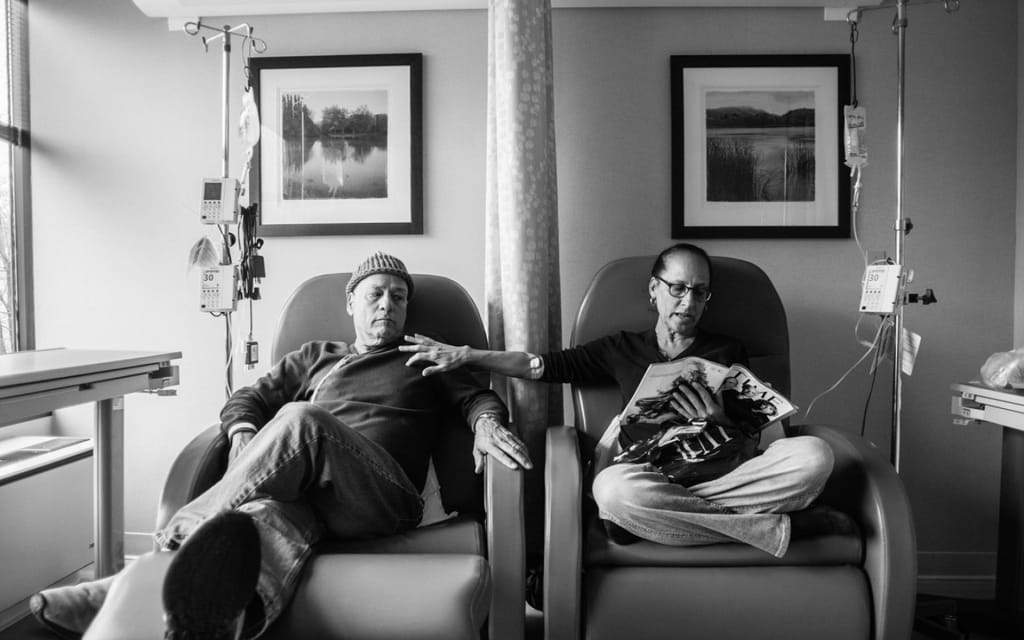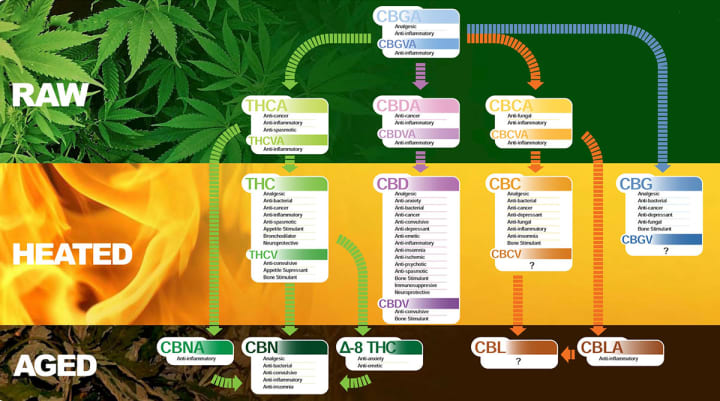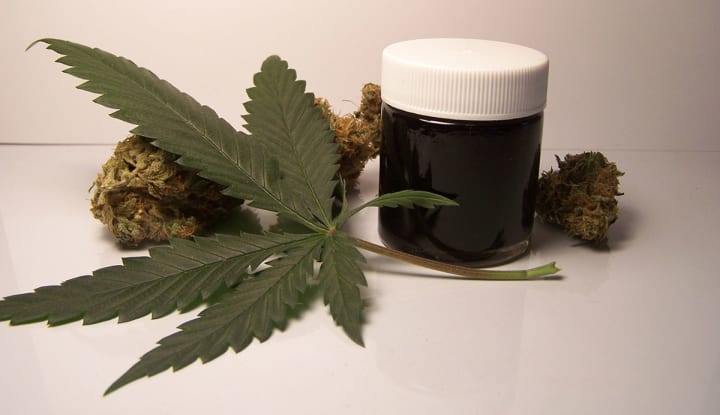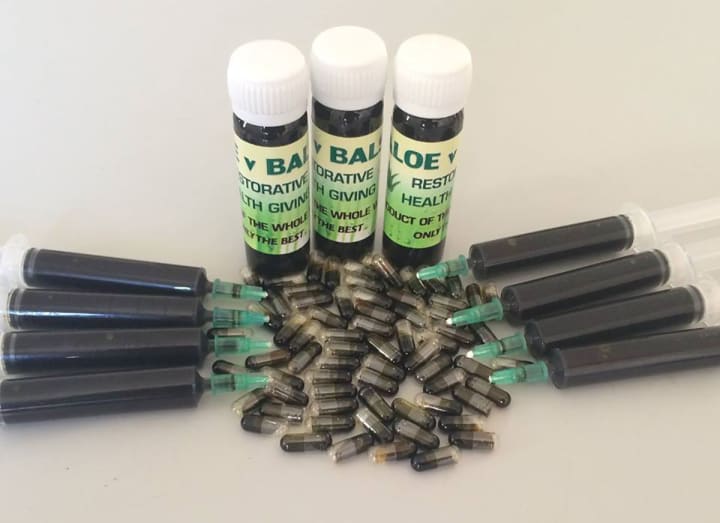Can Cannabis Oil Cure Cancer?
It is only with more medical research that we can say for certain if cannabis oil cures cancer.

With the legalization movement finally starting to make some headway globally, more and more claims are being made about the therapeutic properties of the world's most controversial plant, cannabis. But can cannabis oil cure cancer? Anyone's who's ever smoked a joint can attest to some of the less spectacular claims made by those who advocate it's medicinal use, aiding with sleep, relaxation and appetite. However, the most grandiose assertions about the cannabis plant are a little harder for the average user to relate to, most of all being the claim that cannabis oil can actually cure cancer.
One Man's Trash is Another Man's Treasure
The story of the relationship between cannabis oil and cancer can be traced back to one man, Rick Simpson, who in the 1960s, happened to catch a radio article about a University of Virginia study on the potential health benefits of cannabis. Dismissing it at the time as a potential hoax, he forgot about the study until several years later when he suffered a serious head injury. This left him with post-concussion syndrome, resulting in high blood pressure and balance issues, for which he was prescribed a long list of chemical treatments. After seeing little improvement in his symptoms, and faced with a considerable collection of side effects from all the medication, he was getting desperate and turned to cannabis. He was amazed at the instant results, suddenly feeling able to eat a regular diet and finally being able to sleep for a healthy number of hours at nighttime.
Based on his success with cannabis, he began to develop a highly concentrated form of tetrahydracannabinol (THC), one of the many psychoactive chemicals contained within the raw plant material. Using alcohol to extract the THC he created a potent oil, known as honey oil, hash oil or cannabis oil, which he would ingest numerous times a day. To his surprise, other medical ailments that he had suffered from began to diminish, his arthritis in his knees, for example, started to ease and he was finding himself much more mobile than he had been previous to taking the cannabis oil.

Infographic via Herb
Next, in 2002, Rick decided to visit the doctor about a skin condition he suspected to be cancerous. He had already received surgery on one tumor next to his eye and was awaiting treatment for another blemish on his face when the affected eye began to relapse. At a loss with traditional medical practice and remembering the University of Virginia report, he began to apply his cannabis oil to the affected areas of his face as a topical lotion. He left the sores covered for four days and was amazed at what he discovered when he removed his dressings: fresh, healthy, pink skin. Astounded by his discoveries, Rick approached doctors, the media, the Canadian Legion, basically anybody he thought would be interested in his findings, only to discover again and again that no one would listen to him due to the illegality of the treatment.
He decided to share his knowledge with those who were suffering in his nearby area and openly treated many patients with a great success rate. He grew his own plants and created his own medicines, much to the chagrin of the authorities who raided him on several occasions, destroying his crops. This meant Rick's patients would be without their medicines but also helped publicize the issue, spreading the word of his miracle cure and prompting the creation of cureyourowncancer.org, a hub of information regarding the potential link between cannabis and cancer. Word spread fast and the internet became ablaze with anecdotal evidence from people attesting to the cancer curing properties of the plant.
A Potent Weapon in the War Against Cancer?
Owing to the illegality of cannabis, scientific proof for Rick's findings was scant. Recently, thanks to the increase in jurisdictions legalizing, various reports and studies have taken place which seem to confirm the connection. Studies by SETH Research Laboratories and Complutense University in Spain, among others, found that cannabinoids present in the cannabis plant could fight cancerous cells in a number of ways. The most notable of their findings was that some cannabinoids seem to encourage a cancer cell to self-destruct and have the ability to stop the formation of new blood vessels, vital for tumors to proliferate. This is due to the fact that our bodies have their own system of cannabinoid receptors waiting to make use of cannabinoids, known as the endocannabinoid system. Collectively, these receptors regulate and maintain many of the body's functions. These include the central nervous system, the circulatory system, and immune system. The endocannabinoid system also has a role in stabilizing the production and destruction of cells within the body. These discoveries, together with a study undertaken by Manuel Guzman on rats and mice affected with brain tumors, certainly seem to support Simpson's findings that cancer could be successfully treated with potent doses of concentrated cannabinoids.

Image via Sanatio Strauss
With a rapidly expanding bank of research on the subject, it seems strange that governments aren't fully embracing the discoveries towards the holy grail of medicinal science yet. That is, until you consider the vast sums of money pharmaceutical companies will stand to lose from a treatment that allows a patient to produce their own medicine. Peter Glidden (BS, ND) states in The MD Emperor Has No Clothes states that "97% of the time chemotherapy does not work... chemotherapeutic drugs are the only classification of drugs that the doctor gets a direct cut of". He claims that a doctor will buy a drug from a pharmaceutical company and sell it to patient at a markup and that the only reason people are still prescribed chemotherapy is because of its profitability for the doctor. It's no secret that chemotherapy means big bucks for companies who produce the treatments, and as is so often the case in our world, profit sadly takes precedent over people. Luckily, it does seem like the global legalization movement is winning, albeit slowly and with it comes the opportunity for scientists to properly research the findings of these initial studies.
So that's that then. We beat cancer, right? We can be safe in the knowledge that if we're unfortunate enough to contract the disease we can get a natural and effective treatment with few negative side effects? Well perhaps not just yet.
An Uphill Battle
Dr. Cristina Sanchez PhD reminds us that "we don't know if cannabinoids cure cancer because we don't have (enough) clinically controlled studies". She goes on to state that whilst there is a growing bank of evidence to suggest that there is a link between the destruction of cancerous tissue and high doses of cannabinoids, the majority of the evidence is anecdotal and the medical community needs to see more solid findings. She also advises us that while the claims made in favor of cannabinoids are likely to be substantiated in the coming years, it is important to remember that every patient and cancer is different and that just because something is known as a 'cancer' does necessarily mean not mean the same combination of cannabinoids that worked wonders for one patient will provide the same results in the next. She states that while some types of cancers have more CB1 receptors, some have more CB2 receptors, inferring that a strain used to make an oil that is incredibly efficient at treating one form of cancer may be virtually useless against a different one.

Image via Second Hand Grow
Another interesting case to consider would be that of actor and legendary cannabis activist Tommy Chong. He made no secret of his belief in his favorite plant's ability to cure the prostate cancer he fell victim to in 2012, stating in July of the same year that his successful treatment using cannabis had left him "99% cancer free". However, he was later forced to concede that this was not necessarily the case in 2015 when the disease reared its head again. He had this to say about failed treatment:
Us pot heads, we get carried away. We think pot is going to be the cure for everything, but we have to respect conventional, medical methods... I am learning to respect the conventional (approach) as well as the unconventional. I was going around the country bragging that I had beat my cancer with marijuana. Only trouble is: I don’t know what kind of strains I used, but I used the kind of strain that the cancer said, ‘Oh f**k I like this one’. And it came back, big-time. But I’m fighting it. I’m due in for an operation at the end of this month. By the way it’s good news: I’m going to get a new a**hole…
So, while it seems that the cannabis plant certainly has therapeutic properties with regards the treatment of cancer, it would be a mistake to call cannabis oil a 'cure for cancer'. Each cannabis plant and each cancer is different and as such, much more scientific research is necessary to fully understand the relationship between our own endocannabinoid system, the cannabinoids present in the plant the authorities love to hate, and the nature of the diseases we collectively refer to as cancers. Hopefully, in the coming years with the rolling back of anti-marijuana legislation across the globe the scientific community will finally be able to study the subject in the detail needed, without the stigma and legal issues they have faced in previous years. One thing seems certain however, this is not the last we will hear about cannabis oil being used in the fight against cancer.
Michael Backes offers statistics on using cannabis to treat an array of ailments and conditions, including cancer, in his book Cannabis Pharmacy. Including information on how cannabis works with the body's own system, how best to prepare and administer it, and how to control dosages, this edition is up-to-date with the latest information on the body's encannabinoid system. Please remember every body is different and one size does not fit all. If you live in a state where medical cannabis is available, consult your doctor before self treating for cancer and other life threatening diseases.
About the Creator
Sigmund Fried
Not his real name, but he wishes it was. Wasted, waxing philosophical.






Comments
There are no comments for this story
Be the first to respond and start the conversation.